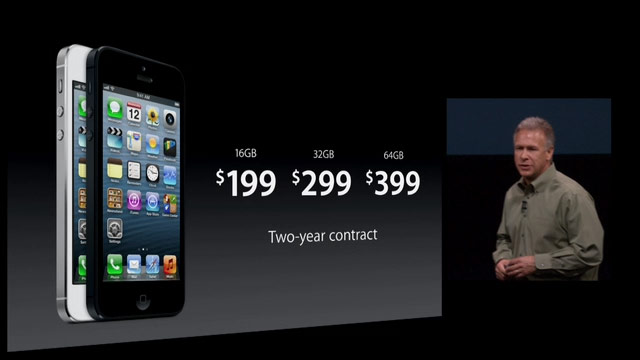Why Does Apple Announce iPhone Pricing And Availability But Other Phone Makers Don’t?

One of the nice things Apple does when announcing a new product — which its competitors only sometimes do, especially in the phone industry — is tell you how much it will cost and when it will go on sale.
It’s not always good news, and it’s not always an exact on-sale date. But I can’t remember the last time Apple showed off a product without providing that information. (Even when Steve Jobs gave an extremely early demo of Apple TV in 2006 — then code-named “iTV” — he pre-announced a price and rough ship date.)
Compare this to the new-product announcements last week:
- Nokia didn’t announce the price or ship date for either of its new Lumia Windows phones.
- Google didn’t announce either the price or ship date for two of its three new Motorola phones.
- Amazon announced pricing and ship dates for all of its new Kindles.
It just makes sense to announce pricing and ship dates as soon as they’re known. So why don’t all companies do this?
I did some research, and here’s what I came up with. Of course, there’s no single answer that’s right all the time — each case is different.
- Some mobile operators see this as their announcement to make. Remember who wears the pants in most carrier-manufacturer relationships — the carrier. In most cases, carriers set the prices because they sell the phones. In many cases, a phone only exists in the first place because an operator has requested or approved it. Motorola’s Droid lineup, for example, is probably heavily influenced by Verizon Wireless. (Heck, “Droid” isn’t even a Motorola or Google brand — it’s Verizon’s.) The carrier can then drag this out for one or two more PR events — perhaps disclosing a price one day, a launch date another day — in an attempt to drum up more excitement and more news coverage. Apple, being Apple, is in the position to demand control over these disclosures. Most of its competitors are not. (Apple also distributes a large portion of iPhones on its own, via its retail empire, which Microsoft and others are now trying to develop.)
- Sometimes, the carrier deals aren’t even signed yet, so prices and shipping dates don’t even exist. The thinking, perhaps: The pre-announcement — and any positive reaction from press or industry that follows — might entice carriers to get on board. Or, sometimes the phones are announced before they’ve passed a carrier’s technical acceptance review, so release dates could change. Or, sometimes it’s a wait-and-see situation. If Apple sells the new iPhone for $x, we’ll charge $x-50. (Remember the repeated BlackBerry Bold launch delays? Or Google’s weird flip-flopping with Verizon over the Nexus One?)
- Sometimes, there’s just too much information to relay. Apple is more U.S.-centric than competitors like Samsung. More than one-third of Apple’s sales last quarter were in the U.S. And it’s still Apple’s home market, biggest market, and most important market. (Not sure about Samsung’s, but I’m guessing it’s less.) Apple typically announces prices in U.S. dollars and availability in different countries, but not prices in different countries. But if Samsung had to make a list of the pricing and ship dates for all of its Galaxy S Whatever partners around the world, it might need a second keynote with another hundred slides.
- Sometimes, it’s just not ready. Is it any surprise that Apple usually has its shit together more than its competitors? In most cases, especially for annual “refresh” releases, Apple tends to wait until something is ready to release before it shows it off. The competition still tends to announce stuff further in advance, especially when it’s in conjunction with a global conference, like C.E.S., Mobile World Congress, etc. In this case, did Nokia want to put its new Lumia devices out there ahead of the new iPhone, even if they wouldn’t ship first, just so people know they exist? Maybe. Does that accomplish anything? Who knows.
- Sometimes, they do announce everything at once. Amazon, for example — though Amazon is also in the position where it controls most of its own distribution, relying less on outside partners. It really depends on the situation. It’ll be interesting to see how Amazon distributes its inevitable phone, and whether it announces pricing and timing right away.

Check out my new site: The New Consumer, a publication about how and why people spend their time and money.

